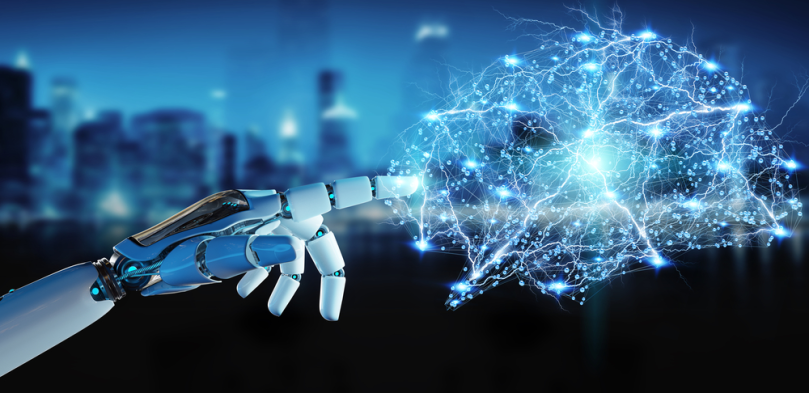From commodities to stocks, trade has been one of the oldest ways to keep up the pace of this ever evolving world. With the introduction and aggressive development of AI, it’s now become an integral part of human existence and its blueprints in Global trading are quite promising and they hold the potential to transform this whole system, How AI is transforming Global trade is one of most prominent debate which aims to help many perplexed traders worldwide, get ready for the shift.
AI has taken the responsibility of solving many problems of humans within a considerably lesser amount of time and that too with hundred percent accuracy. The error free and proactive trait of AI has appealed to many industries to adopt it’s support and automate many tasks saving their time and providing clean and clear results. Trading platforms have been earlier using traditional softwares which were old like the trading itself, but now platforms like Quatumaiplatform are using AI and are changing the whole approach we deal with stocks and trading.
Transformations and their impact in our concerned area of businesses are must to know about, in order to adopt the changes and promising initiatives as soon as possible to keep up in the race. This piece will talk about AI introduction and its impact on Global trading along with discussing some other crucial transformations AI has done in Global trade.
What Does AI Mean In Global Trade?
Containing more knowledge about AI transformational impacts on Global trade,we must clarify what is meant by AI in Global trading. To understand the potential significance and application of narrow AI for trade, it is also important to briefly attain knowledge about its core parts. Specifically, narrow AI is mainly based on machine learning, which uses large amounts of data or large language models (LLM) and powerful algorithms to learn and develop increasingly vigorous predictions about the future.
The data which machine learning uses can either be data with supervision, data with associated facts, like labels, or unsupervised and raw data that requires the recognition of patterns without any prior prompting. This reinforces machine learning, where algorithms actively choose from the data and can even generate their own data for training.
AI Impact On Transforming Global Trade
AI and its development will deeply impact Global trade in different ways. The macroeconomic impacts of AI is one among many its related trade effects. In a scenario, if AI increases productivity growth, then this will relatively increase economic growth and will provide new opportunities and open many gateways for Global trade. The current rates which are prevailing for productivity growth globally are low and there are various causes suggested by experts. The main reason identified for low productivity growth particularly pertinent for understanding the potential link with AI is that it takes time for an economy to imbibe the traits and incorporate and then making effective usage of other new technologies.
How AI Is Transforming Global Trade?
Optimizing Supply Chains
AI is playing a crucial role in optimizing and streamlining one of Global trade’s most complex aspects, supply chain.AI-powered algorithms easily read, analyze and manipulate data related to inventory levels, production capacities, transportation routes, and customer demand to channelize supply chains for more effective operations. By using the advantages of AI, businesses can accurately forecast, reduce lead times, cost cuttings, which enhances overall efficiency of a trading platform.
Market Intelligence and Trade Opportunities
To empower businesses to always make informed & fruitful decisions and identify trade routines and opportunities is one of the most premium advantages of AI-driven market intelligence tools. AI tools analyze vast amounts of data from numerous sources, which includes trade databases, market reports, and social media by which AI algorithms learn and can identify emerging trends, consumer preferences, and market demands further helping the traders in staying ahead in their businesses.
By timely providing valuable insights, AI-powered market intelligence tools can help them intensify their impact and to retain competition in the global marketplace. Such practices provide businesses with opportunities with guidance to develop targeted marketing strategies, identify new export markets, and curate their product offerings in order to suit the needs of specific customers.
Risk Assessment and Fraud Detection
Global trade involves potential risks, including fraud, counterfeiting, and other countless illicit activities. AI technologies hold the capabilities to encounter such risks easily, they have been developed with intention to understand, analyze and operate with efficiency which humans miss to obtain. By enhancing risk assessment and fraud detection capabilities AI can deal with them quite easily. AI algorithms can analyze transaction data, and financial records, to identify and flag suspicious patterns that may include fraudulent activities.
Conclusion
The prime concern about the impact of AI is the anticipated amount of jobs it will take over, as AI is likely to be adopted for automation factors and speed up job losses for low-skill, and those who don’t adopt and integrate it in their skill set quite early. At the same time AI is also expected to emphasize on various skills of workers associated as it is mainly used to add value to production and products. Which should further lead to expansion of the share of services in production as well as Global trade.

